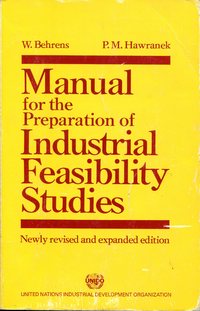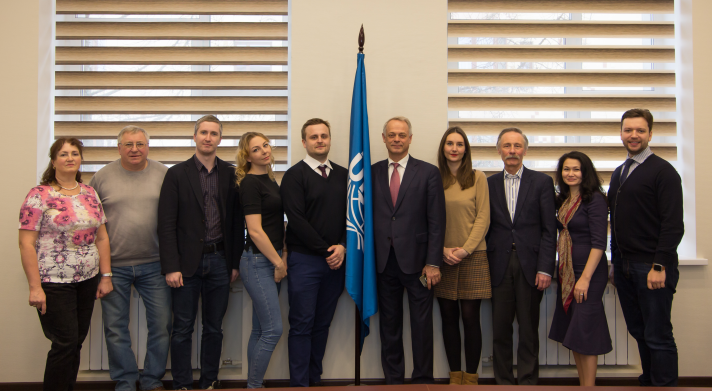The UNIDO Centre in Russia turns 30
The UNIDO Centre for International Industrial Cooperation in the Russian Federation operates since 18 December 1989 with the support of the Ministry of Science and Higher Education of the Russian Federation and the Ministry of Foreign Affairs of the Russian Federation.

The Centre draws on more than 50 years of UNIDO experience in the world and focuses on the following areas:
- Promotion of the Industry 4.0 paradigm;
- Promotion of nature like technologies;
- Support of the Russian National project “Ecology”;
- Modernization of industry;
- Innovative industrial development;
- Educational programmes;
- Industrial ecology;
- Waste management;
- Improving energy and resource efficiency;
- Technological transfer;
- Promoting compliance with international agreements such as the Paris agreement, the Montreal Protocol, the Stockholm and Basel conventions, etc.
Important partners of the UNIDO Centre are the Ministry of Natural Resources and Environment of the Russian Federation, the Ministry of Industry and Trade of the Russian Federation, the Ministry of Energy of the Russian Federation, the Chamber of Commerce and Industry of Russia, as well as many other companies and agencies.
For 30 years we have been working closely with business representatives, manufacturers, industry associations and self-regulatory organizations, educational and scientific associations. Joint work helps to achieve better results in the dialogue between all participants and the formation of recommendations in industrial policy.
The history of the UNIDO Centre in Russia
30 years ago, in December 1989, Director General of UNIDO D. Siazon and deputy chairman of the USSR Council of Ministers N. Laverov exchanged with letters ratifying the Agreement on the UNIDO Centre for International Industrial Cooperation in Russia. Thus, a UNIDO unit, that was designed to develop the scientific and industrial cooperation of Russian companies with partners from developed and developing countries, was formed and began its work in Moscow.

The UNIDO Centre always strived to answer the most conversational questions and involve the most relevant international experience, knowledge and technology. In the early 90s, the Centre devoted special attention to the promotion of market mechanisms in the Russian economy. Training program on methods and practices of identification, development, assessment and financial analysis of industrial investment projects was established. The methods and software for analysis of investment projects developed by UNIDO were very successful among the Russian companies and became the basis for today’s popular computer programs on financial analysis, that take into account the specifics of the Russian legislation. The large UNIDO international investment forums conducted for the Russian regions allowed domestic enterprises to master the methods of developing attractive investment project proposals and establish business contacts with potential partners and investors.
The formation and development of the Russian market determined the most demanded forms of cooperation with UNIDO. In the late 90s integrated technical cooperation programmes came to the fore. The progremmes covered a wide range of problems in areas such as technology forecasting (Foresight), inter-country cooperation in the field of technological exchange, promotion of agricultural enterprises, competitiveness improvement of the shoe industry, quality management in small and medium-sized enterprises, energy efficiency and cleaner production, regional industrial development.

After the Russian Federation became the donor country the emphasis in cooperation lays on implementation of projects aimed at supporting and developing the industrial sector, introduction of international standards in the field of education, energy, environment, water, attraction of investments into the country’s economy, environmental conservation and protection, creation of effective mechanisms for hazardous waste treatment, as well as implementation of Russia’s obligations under international protocols and conventions (the Montreal Protocol, the Stockholm Convention , the Basel Convention and others). Since 2009, Russian Federation annually contributes 2.6 million USD to UNIDO Industrial Development Fund, which is used for the preparation and implementation of projects in the interests of Russian industry.

Since 2010, UNIDO has worked with EurAsEC to promote the process of creating a common economic space by creating the conditions for the development of international industrial cooperation that will enhance the competitiveness of enterprises, expand access to markets, and increase the flow of investment and technology. The Centre supported the establishment of a network of International Industrial Cooperation Centres integrated into the UNIDO global network and the appraisal of additional mechanisms to enhance mutually beneficial relations among enterprises of the EurAsEC Countries.
4 National Cleaner Production Centers were established with the support of the UNIDO Center – 2 in Moscow („International Center for the Best Environmental Technologies“, the Fund „National Environmental Management and Cleaner Production Center of oil and gas industries“ on the basis of the Gubkin Russian State University of oil and gas), 1 in Kazan (Volga International Cleaner Production Center), and 1 in St. Petersburg (North-West International Cleaner Production Center). The activities of the National Cleaner Production Centres are supported and coordinated by the UNIDO Centre in Russia.
The Centre supports activities aimed at improving environmental education among young people. One of the major events in this area was the all-Russian competition „Protect the ozone layer and the Earth’s climate“ and the celebration of Ozone Day (September 16). The hosts of these events were the Ministry of Education and Science of the Russian Federation, the Ministry of Natural Resources and Ecology of the Russian Federation, the Ministry of Foreign Affairs of the Russian Federation, as well as major manufacturers of refrigeration equipment and climate control systems.
In recent years, the Center implemented projects on environmentally sound management and destruction of persistent organic pollutants, decommissioning of ozone — depleting substances, improving energy and resource efficiency, waste management, promotion of cooperation within the BRICS framework. Among other important activities of the Centre are scientific and technical cooperation with developing countries. A project on support of scientific and technological cooperation for small and medium-sized enterprises in Russia and Brazil in support of the BRICS Declaration was implemented. It is planned to expand this project to other BRICS countries.
Among new important directions are Industry 4.0, promotion of natural technologies, support of the National project of the Russian Federation „Ecology“, which began in 2018.


